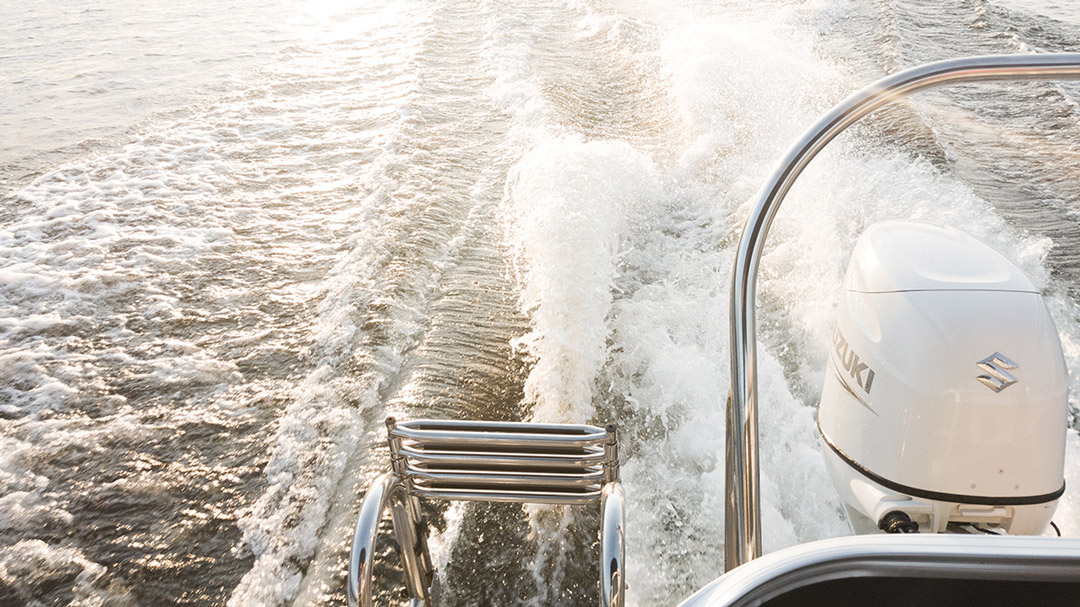
What is that you may ask?
Fuel husbandry is the term given to the procedure of how to care for your fuel and fuel system in order to ensure your engine is getting clean fuel.
Dirty or contaminated fuel is the cause of almost 40% of our major repairs at SFBW.
Storing fuel for long periods of time allows condensation to occur in the tank.
This condensation collects at the bottom of the fuel tank.
Water in itself is a bad contaminant as your engine can’t burn it and it will cause your engine to run rough, stall and on some engines damage the fuel pump.
The water fuel barrier is also the perfect breeding ground for diesel bug.
Diesel bug can be identified by that black or brown slimy substance that appears in the glass bowl on your racor filters (if you have them installed.).
This “slime” can quickly block filters and starve your engine of fuel causing it to run rough, reduce power output or damage fuel pumps and if it makes it into the injectors, damage them also.
Anyway, enough about the issues, here is a checklist of things to do to prevent the issues in the first place;
There are some different things to consider when dealing with gas and diesel fuel husbandry.
The recommendations will be split into two sections to cover each, but the description of issues caused by bad fuel husbandry is universal.
You gas guys can ignore the section about Diesel bug.

Gas husbandry:
Ensure the fuel you are getting is the correct type and quality.
This may seem obvious but if you are running a two-stroke outboard you need to make sure the oil is added.
You need to make sure that you are not bunkering diesel.
It is best not to skimp on cost and get the premium grade gas as this will last longer in storage and is better for your engine.
Fill your gas tank after each outing.
Reducing the air gap in the fuel tank reduces the space for condensation to occur.
Add fuel stabilizer, believe it or not, fuel does go bad.
If you are going to store your boat for an extended period of time add some fuel stabilizer to ensure it is good to go the next time you head out.
Replace your fuel filters/ water separation filters after every season.
Fuel filters collect all the water and dirt that was in the fuel passing to your engine, it is best not to let it sit in the system for extended periods of time.
If you are running an outboard most manufacturers recommend running dry of fuel after each use.
Follow the manufacturers’ recommendations.

Diesel Husbandry:
Ensure you are getting the correct type and quality of diesel.
Here in the U.S.A most diesel you get will be good.
When you head to other countries such as Mexico, some fuel providers are not as diligent with their fuel husbandry and may supply you with fuel that is heavily contaminated and/or contains an excessive amount of water.
Ask them to provide you with a fuel sample in a clear container (watch them take the sample).
Let the sample sit for 5 minutes.
Look for any water that has settled at the bottom, look for any floating particles, smell the fuel to see if it smells earthy, if any of these things are present refuse the fuel and ask for better quality.
Good diesel appears clear and bright and does not smell earthy.
Add diesel biocide each time you bunker.
Diesel biocide is cheap and affordable, having to get your fuel system clean due to a bacterial bloom is not, why take the chance?
Change the type of biocide you use every 2 years.
As with antibiotics bacteria can become immune to the biocide you are using.
Add fuel stabilizer, believe it or not fuel does go bad.
If you are going to store your boat for an extended period of time add some fuel stabilizer to ensure it is good to go next time you head out.
Replace your fuel filters/ water separation filters after every season.
Fuel filters collect all the water and dirt that was in the fuel passing to your engine, it is best not to let it sit in the system for extended periods of time.
Keep your fuel tank topped up as much as possible.
This will reduce the air gap above the fuel and reduce the area where condensation can occur.
If you have any doubt about your fuel quality, have a professional company come and replace the fuel and clean the system. This may seem expensive but we can assure you it is much cheaper than replacing a high-pressure fuel pump.
